This article shares valuable insights into off-task behavior, especially for parents of children with autism. It highlights how personalized strategies and tweaks to the environment can really make a difference in enhancing focus and engagement. 🌟 For instance, structured routines and positive reinforcement can create a supportive atmosphere where kids can better manage distractions and improve their attention skills.
Let’s dive a bit deeper! By collaborating with educators and implementing effective interventions, parents can foster an environment that truly supports their child’s learning journey. Imagine the difference it can make when routines are in place and positive feedback is given consistently! This approach not only helps children stay on task but also builds their confidence.
We’re here to help you every step of the way! If you’re navigating these challenges, remember that you’re not alone. Let’s explore this together and find the strategies that work best for your family!
Understanding the nuances of off-task behavior is crucial for parents of children with autism. These behaviors can significantly affect a child's ability to engage and thrive in different settings. In this article, we’ll explore seven insightful strategies that can empower you as a parent to better comprehend and address these behaviors, ultimately enhancing your child’s focus and independence.
But with so many approaches out there, how can you tell which methods will truly resonate with your child’s unique needs? 🤔 Exploring this question can lead to transformative changes in both understanding and intervention. Let’s dive in together!
At Rori Behavioral Innovations, we take a data-driven approach to Applied Behavior Analysis (ABA) therapy, creating customized plans that cater to each individual's unique needs. By carefully examining the specific triggers and patterns behind behaviors that reflect off task meaning, our clinicians can develop targeted interventions that help enhance engagement and focus. This personalized care not only ensures that our strategies are effective but also aligns with the interests and strengths of each child, making it easier for them to stay focused during various activities.
Did you know that studies show effective use of tailored approaches can significantly boost functional independence and reduce challenging behaviors? This really highlights the transformative potential of personalized ABA interventions! With an impressive success rate of over 89% in treating youth with ASD, we believe that collaboration among clinicians, parents, and educators is key to developing comprehensive strategies.
Understanding executive functions—like planning, organization, and impulse control—can also provide valuable insights into behaviors related to off task meaning. By looking at the A-B-Cs of actions (antecedent, behavior, consequence), we ensure that our interventions are not just effective but also adaptable to each child's changing needs. Let’s explore this together and see how we can support your child on their journey!
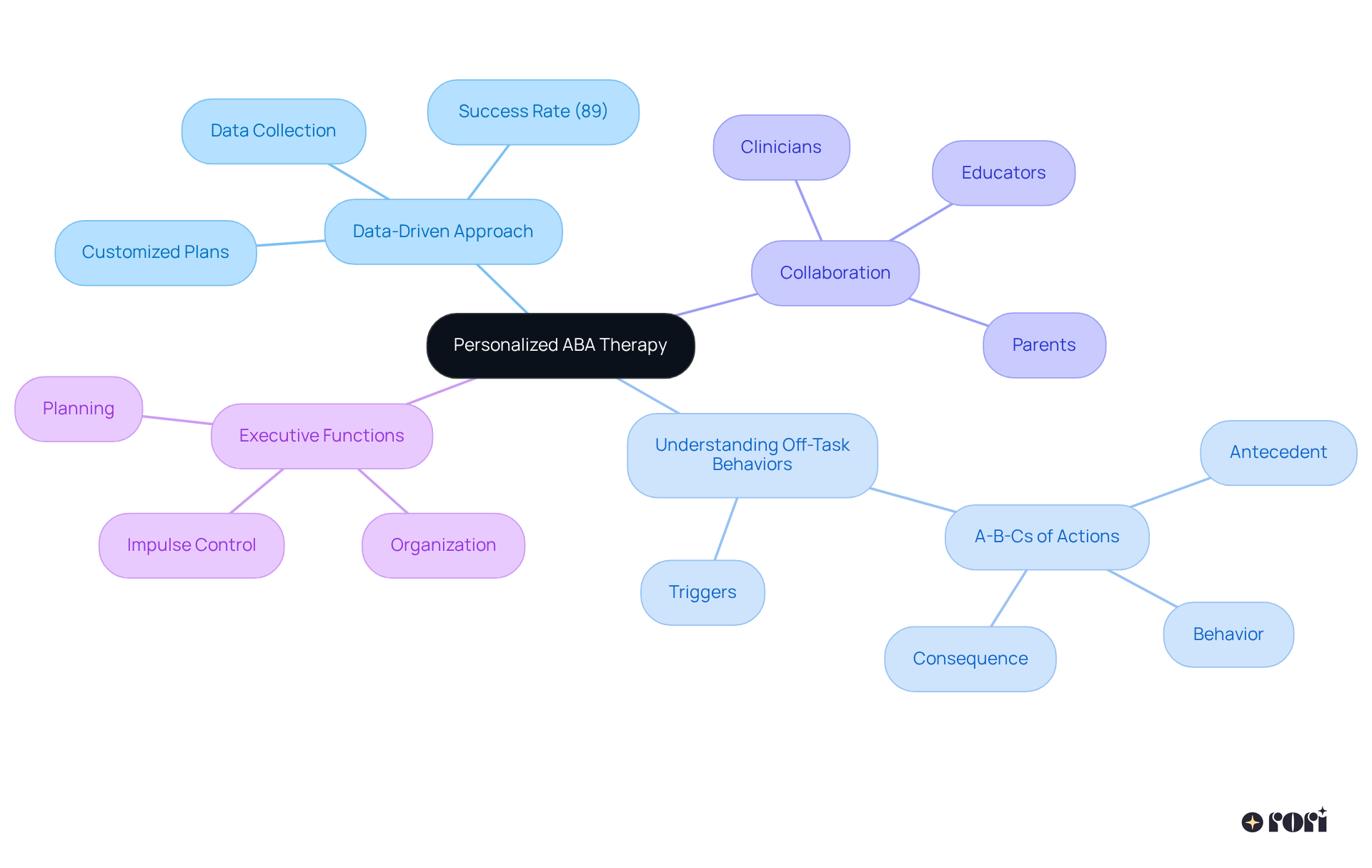
Off task meaning encompasses those little distractions that can pull a young person's focus away from what they're doing. For kids with autism, this might show up in different ways—like daydreaming, engaging in repetitive movements, or getting sidetracked by things happening around them. Understanding these patterns is really important for parents. It helps you spot when your child might need a bit of extra support to refocus and join in on activities more effectively. Let’s explore this together!
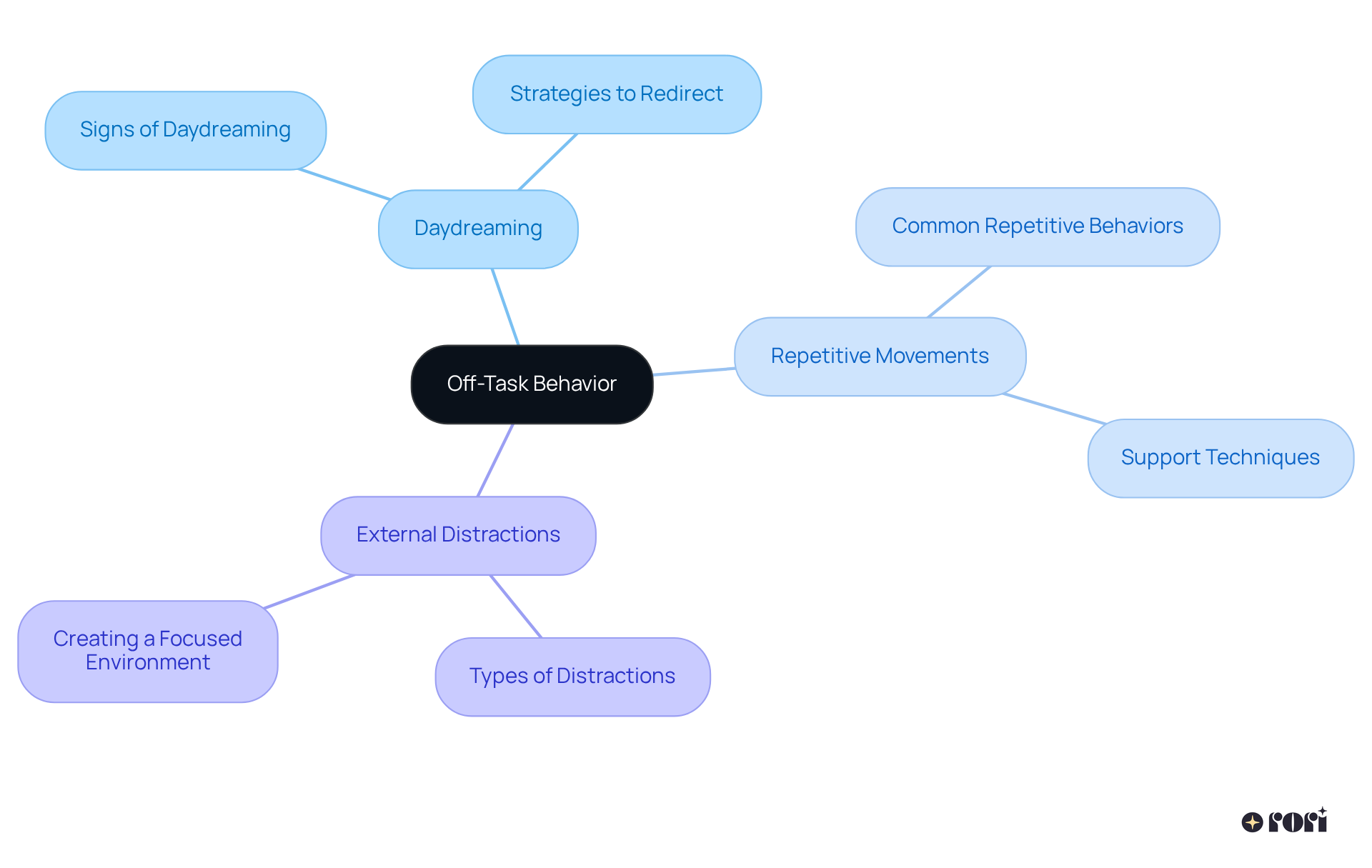
The environment plays a huge role in how well a young person can concentrate, especially for those with autism. Research shows that noise levels and visual distractions can lead to off task meaning, making it harder to stay focused. For example, a cluttered or chaotic space can be overwhelming, leading to more distractions and challenges, which can contribute to off task meaning. Did you know that children with autism face medical costs nearly 4.5 times higher than their peers without ASD? This highlights just how crucial effective interventions can be.
So, what can parents do? Creating structured and calming environments is a great start! By minimizing sensory overload, you can make a big difference. Simple strategies like:
can help create a more supportive atmosphere for learning and engagement. Behavioral specialists agree that a well-organized environment can greatly improve a young person's focus and reduce off task meaning when engaging with tasks.
By prioritizing these adjustments, you can create distraction-free zones that truly support your child's development. Let’s explore this together! Your efforts can lead to a more positive and productive experience for your child.
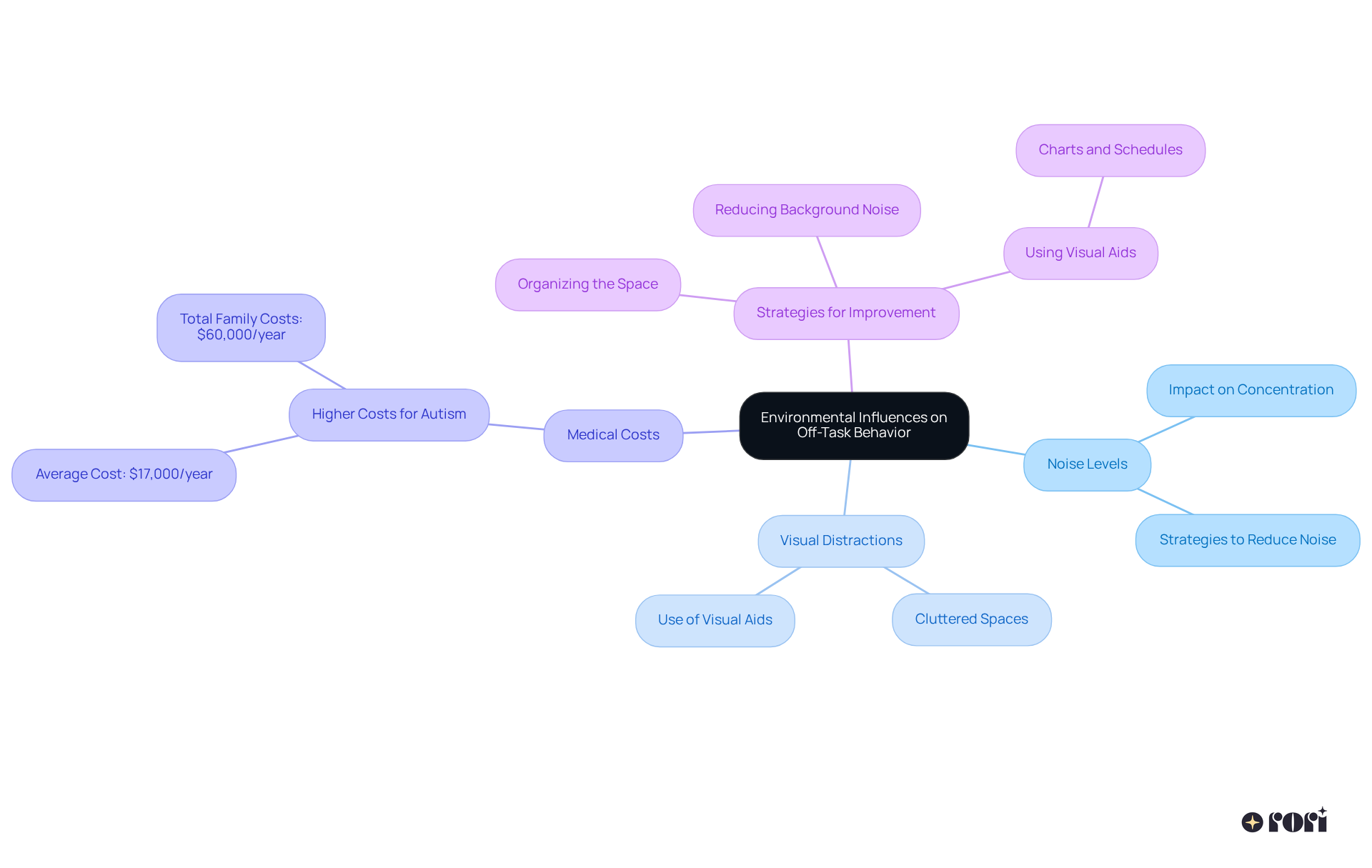
Effective communication is crucial for reducing actions that fall under off task meaning in individuals with autism. Parents, you can really enhance understanding by using simple, direct language paired with visual supports like schedules or cues. This helps to clearly convey expectations and instructions. Research shows that visual activity schedules (VAS) are particularly effective in teaching various skills, including on-task conduct and social initiation. For instance, studies have found that VAS interventions can significantly reduce distractions and boost task engagement, leading to better overall conduct in kids.
Let’s look at some real-life examples! One case study showed that using visual aids in ABA therapy really improved kids' comprehension and retention of information, which in turn helped them focus better during tasks. Instructors have noticed that these methods not only help young learners stay focused but also improve their communication skills, which can often be a challenge for individuals with autism.
Moreover, data suggests that effective communication strategies, including visual supports, can minimize distractions and encourage focus. By strengthening these approaches, parents can create a nurturing environment that inspires their children to engage more actively in activities. This ultimately leads to greater independence and skill enhancement. Let’s explore this together and see how we can support your journey!
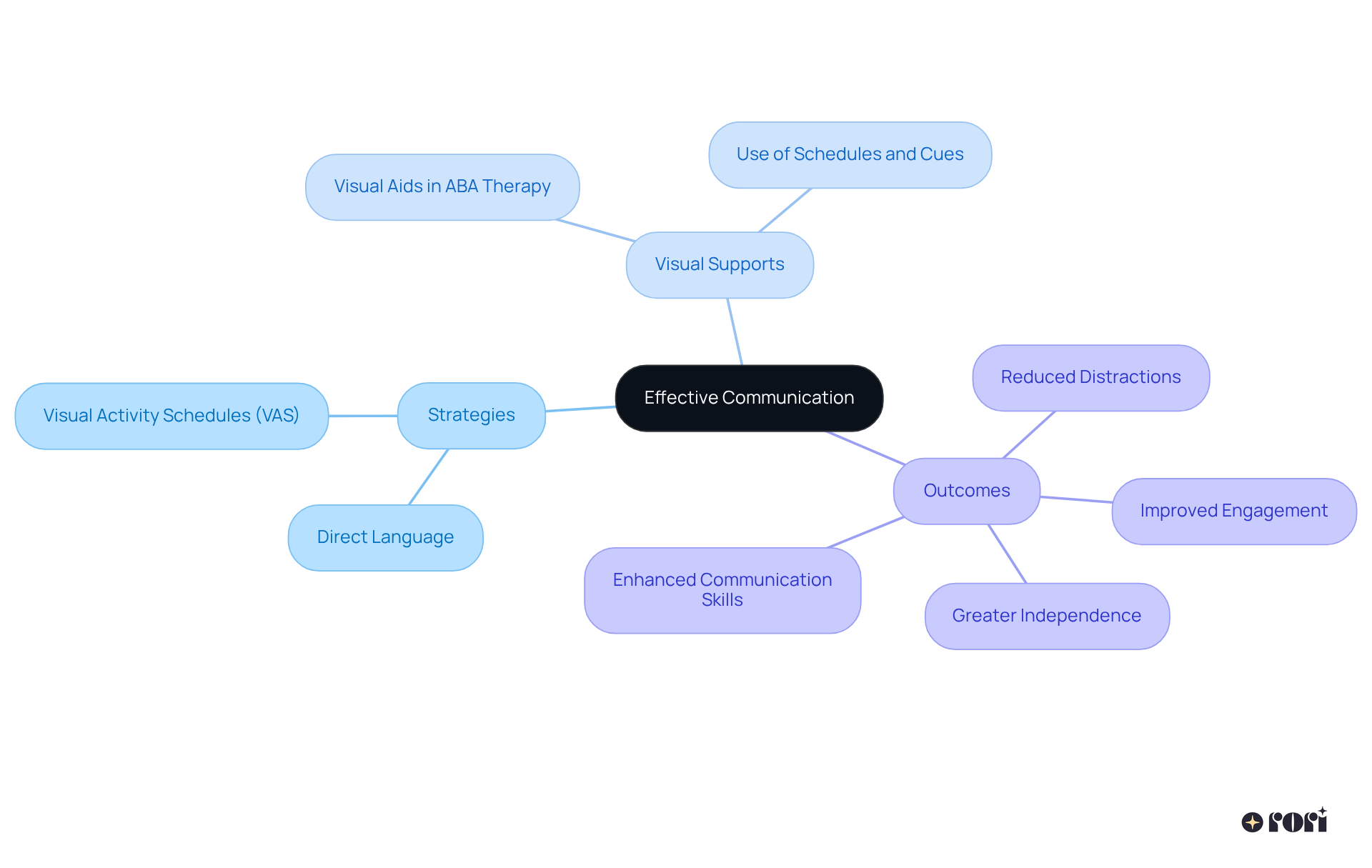
Positive reinforcement is all about rewarding the actions we want to see more of. For kids with autism, this might mean giving praise, tokens, or other fun rewards when they stay focused. By consistently recognizing and celebrating those moments that illustrate off task meaning, parents can help their children connect focus with positive outcomes. This can really boost the chances of maintaining that attention in the future!
Imagine the joy when your child gets a little token for staying on task, instead of being off task meaning! It’s those small victories that build a sense of accomplishment. When you acknowledge their efforts, you’re not just rewarding behavior; you’re fostering a supportive environment where they can thrive. Let’s explore this together and see how we can make focusing a fun and rewarding experience!
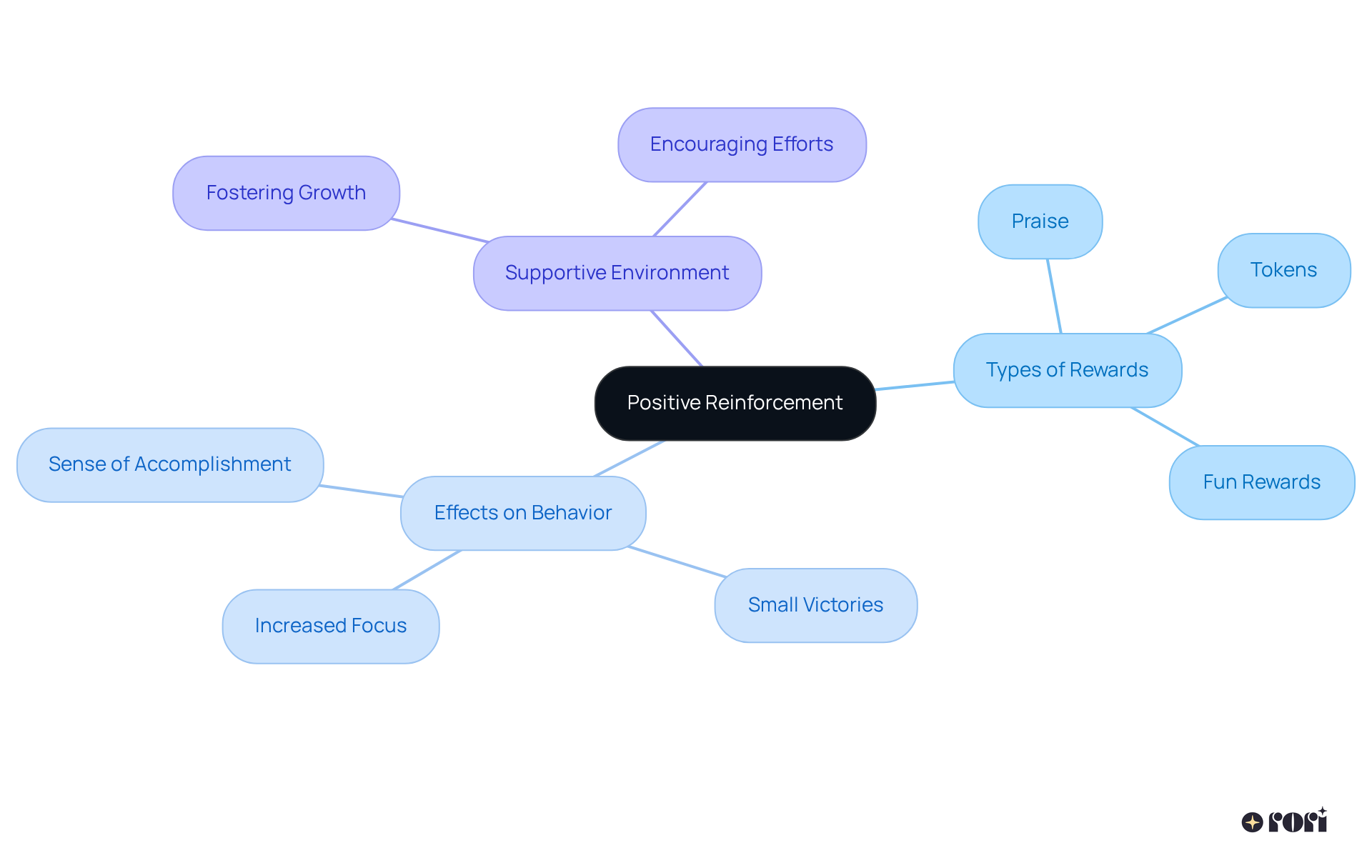
Children with autism often thrive in structured environments where routines are clearly defined. Research shows that having regular daily routines can significantly ease anxiety—a key aspect linked to autism spectrum disorder (ASD)—and help reduce behaviors that reflect off task meaning. This structure enables kids to better understand what to expect throughout their day. By using visual schedules that outline daily activities, parents can help their children anticipate transitions, which boosts engagement and focus.
For example, studies have found that students who use visual schedules show noticeable improvements in on-task behaviors, including better listening skills and productivity at school and home. Creating a dependable routine not only nurtures a sense of safety but also encourages young individuals to participate more actively in activities, ultimately supporting their growth and independence. As development specialists highlight, consistency is vital for youth with autism, helping them navigate their daily lives with greater ease.
To create an effective visual schedule, parents can start by listing daily activities and incorporating images or symbols that represent each task. This approach makes it easier for children to follow along. Let’s explore this together and see how these strategies can make a difference in your family’s routine!
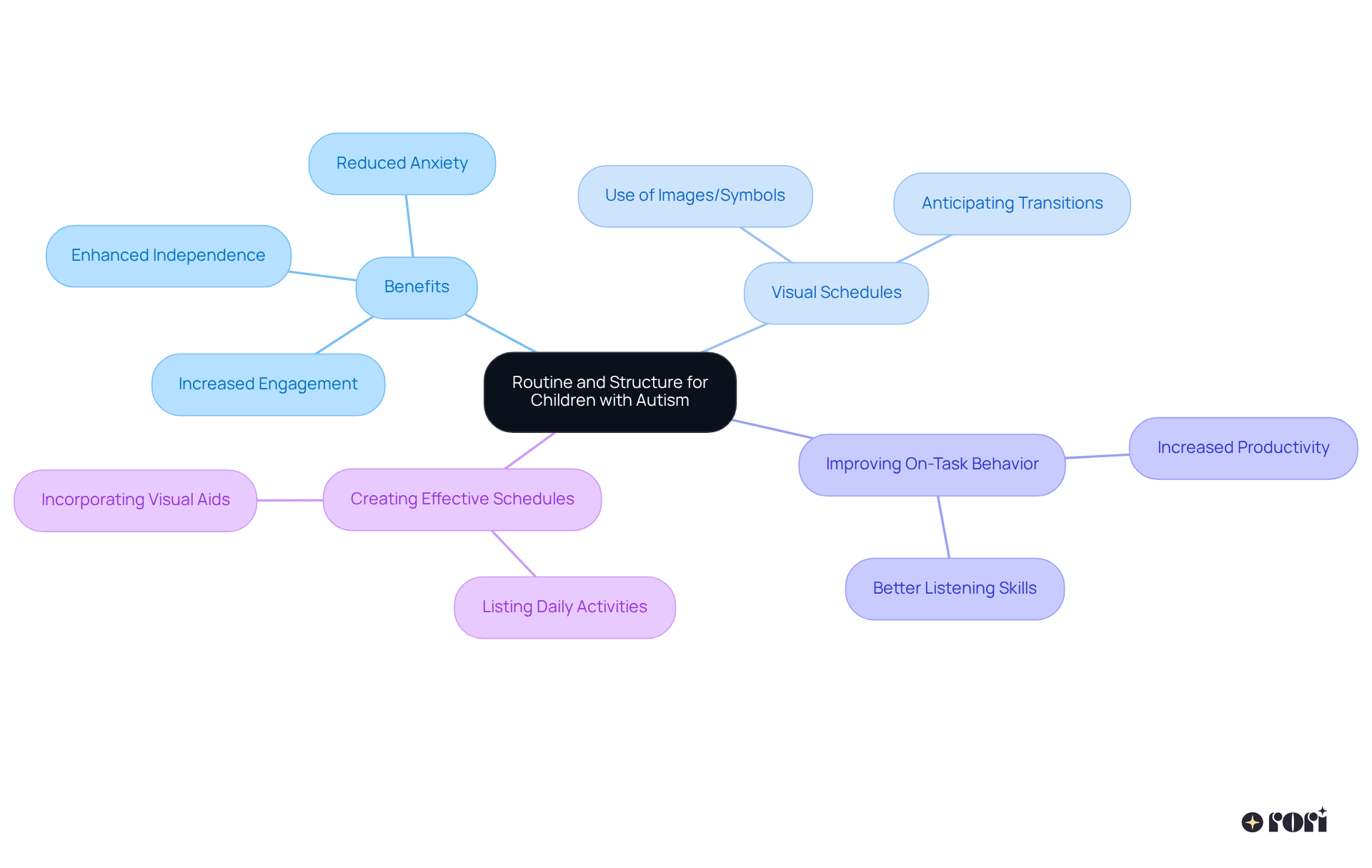
Supporting emotional regulation is crucial for helping our little ones stay focused. 🌟 Parents can teach their children coping strategies like deep breathing or mindfulness techniques to help them handle overwhelming emotions. By creating a safe space where kids feel comfortable sharing their feelings, we can help them develop the skills they need to manage their emotions. This ultimately leads to better concentration and attentiveness during activities. Let’s explore this together!
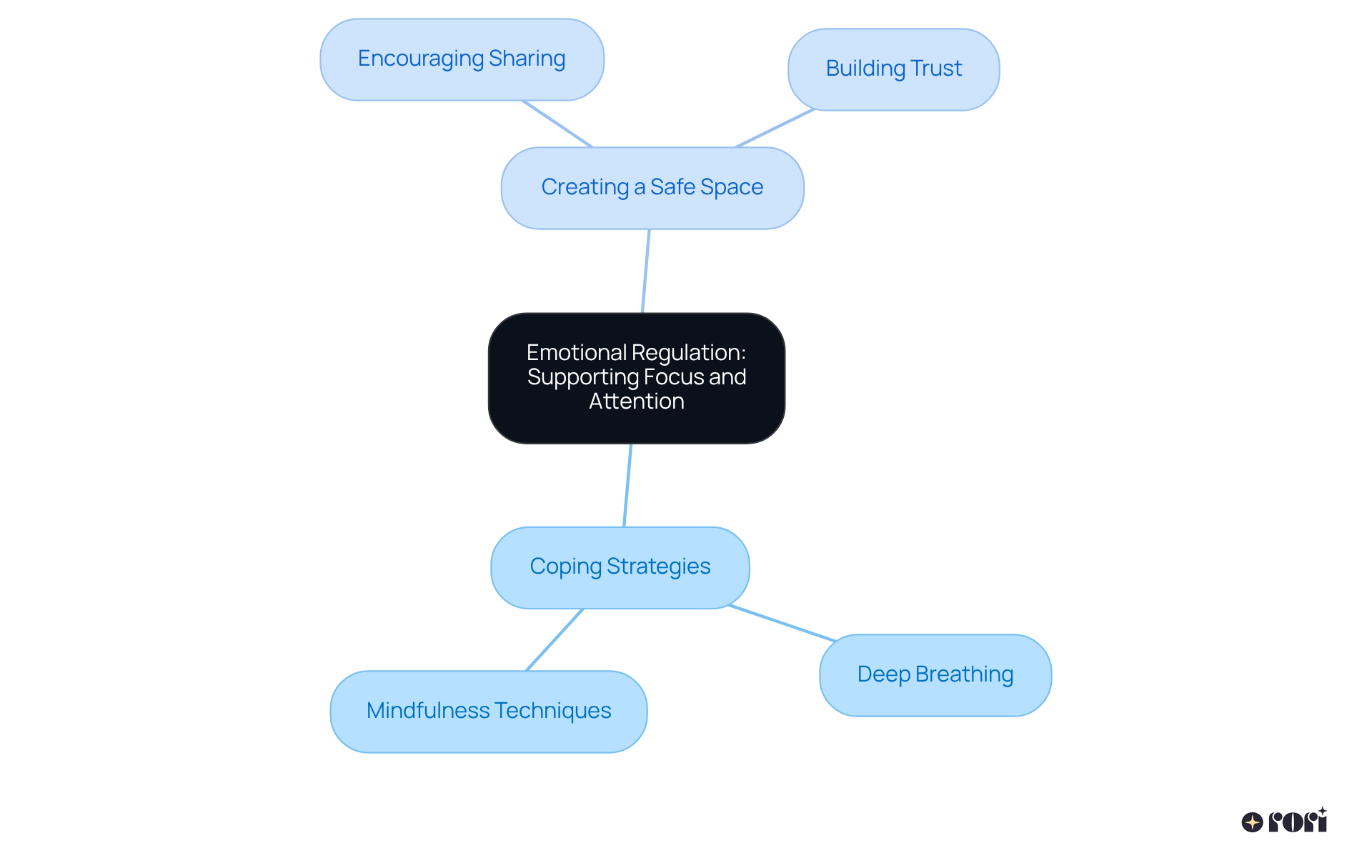
Working together with educators is essential for effectively managing behaviors that reflect off task meaning in individuals with autism. At Rori Behavioral Innovations Inc., we’re here to support schools with autism-related issues, helping to bridge the gap between parents and educators. It’s crucial for parents to keep those lines of communication open, sharing insights about their child’s behavior and progress. Regular chats can really help both sides understand the young person’s needs better, leading to consistent strategies that encourage on-task behavior both at home and in school.
The Family-School Partnership Program (PSP) connects families with Guardian Mentors, fostering collaboration and mutual respect between parents and school staff. This unified approach ensures that young individuals receive the support they need in various environments, ultimately enhancing their focus and engagement. To kick off these conversations, parents can set up regular meetings with educators to discuss their child’s progress and effective strategies that work at home. By building a partnership with educators, parents play a vital role in creating a supportive environment that empowers their children to thrive. Let’s explore this together!
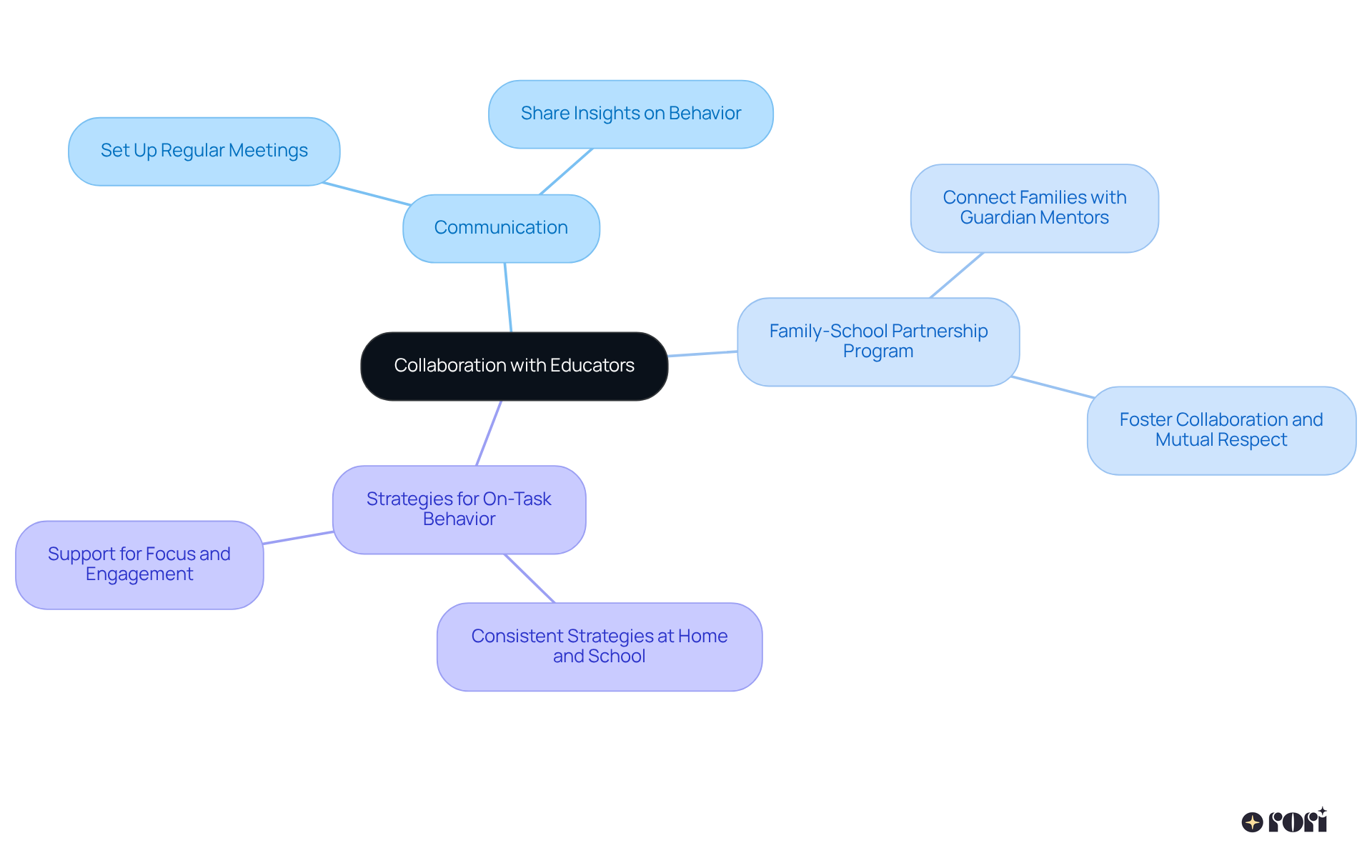
Tracking progress consistently is so important for understanding how well strategies work to reduce behaviors that align with off task meaning. Parents, it's essential to keep an eye on your child's engagement levels and any changes in their behavior over time. By looking at this information, you can spot patterns and make thoughtful adjustments to your approach.
This ongoing evaluation helps ensure that your interventions stay relevant and effective. It ultimately supports your child's ability to focus on tasks. Remember, you’re not alone in this journey—let’s explore this together!
![]()
Parents, we understand that managing behavior that reflects off task meaning can be quite a challenge. That's why accessing community resources can be a game-changer! Local autism support groups, workshops, and online forums are treasure troves of insights and strategies shared by other caregivers and professionals. 🌟
Imagine connecting with others who truly get what you're going through! Plus, don’t hesitate to reach out to local therapists or behavioral specialists—they can help enhance your young person’s treatment plan. By tapping into these resources, you can build a supportive network that empowers you on this journey to help your child thrive. Let’s explore this together! 💪
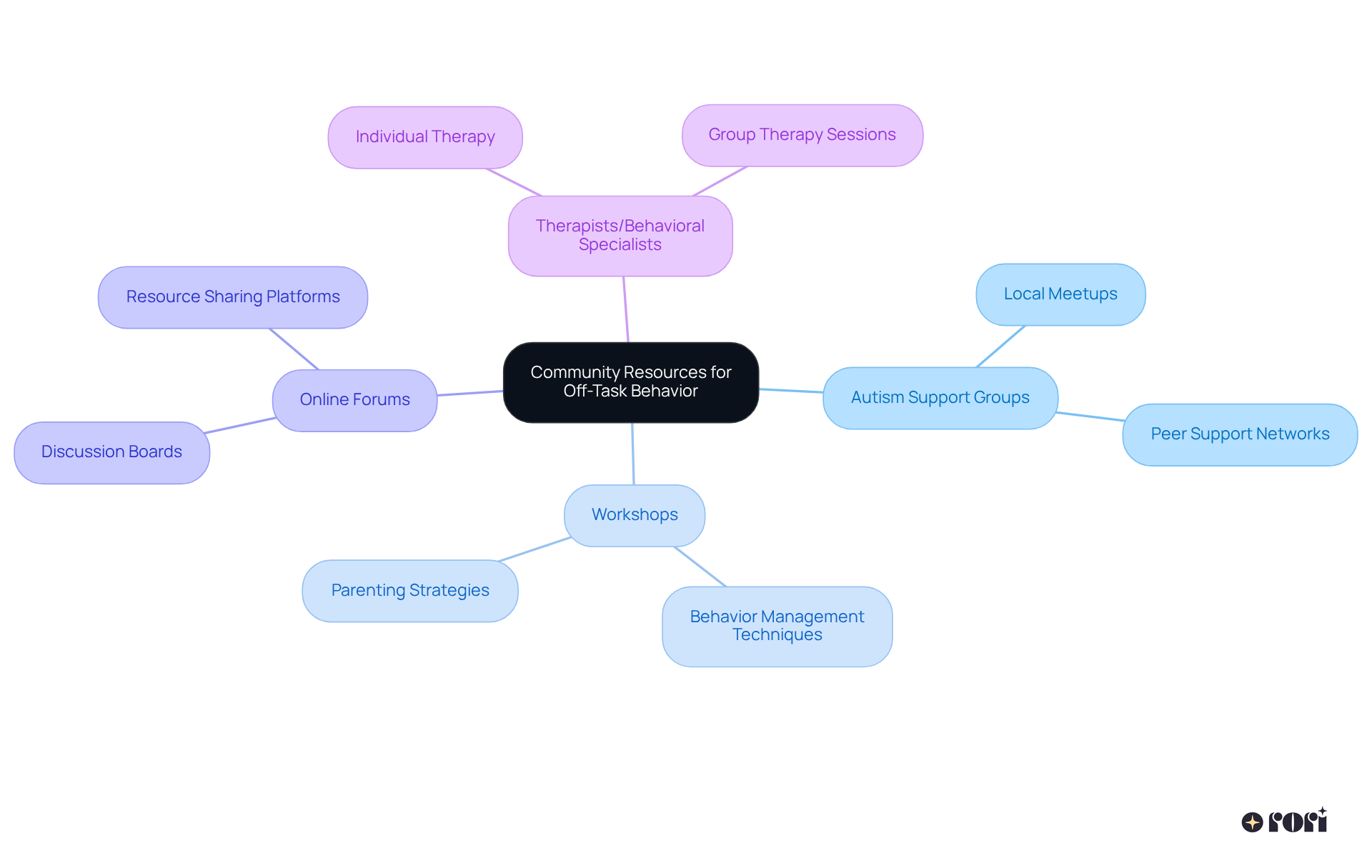
Understanding off-task behavior is crucial for parents of children with autism. It helps in providing the right support and intervention strategies tailored to each child’s unique needs. By recognizing the various factors that contribute to off-task behavior—like environmental influences, communication techniques, and the importance of routine—parents can create a nurturing environment that truly fosters focus and engagement.
Key insights from this article highlight:
Strategies like creating structured environments, utilizing visual aids, and collaborating with educators can significantly enhance a child’s ability to concentrate and participate in activities. Plus, consistent monitoring and access to community resources empower parents to adapt and refine their approaches as needed.
Ultimately, the journey of supporting a child with autism in managing off-task behavior is one of collaboration, understanding, and patience. By actively engaging with the resources and strategies discussed, parents can make a profound difference in their child's ability to focus, thrive, and achieve greater independence. Embracing this journey together not only strengthens family bonds but also builds a resilient support network that encourages growth and success. Let’s explore this together! We’re here to help you every step of the way!
What is Rori Care's approach to ABA therapy?
Rori Care uses a data-driven approach to Applied Behavior Analysis (ABA) therapy, creating customized plans tailored to each individual's unique needs. Clinicians examine specific triggers and patterns behind off-task behaviors to develop targeted interventions that enhance engagement and focus.
How effective are personalized ABA interventions?
Personalized ABA interventions have an impressive success rate of over 89% in treating youth with Autism Spectrum Disorder (ASD). Studies show that tailored approaches can significantly boost functional independence and reduce challenging behaviors.
What role do executive functions play in off-task behavior?
Understanding executive functions such as planning, organization, and impulse control provides valuable insights into off-task behaviors. This understanding helps clinicians develop effective and adaptable interventions based on the A-B-Cs of actions (antecedent, behavior, consequence).
What does "off-task behavior" mean for children?
Off-task behavior refers to distractions that pull a child's focus away from their activities. For children with autism, this may manifest as daydreaming, repetitive movements, or getting sidetracked by their surroundings.
How does the environment influence off-task behavior?
The environment significantly impacts a young person's ability to concentrate, especially for those with autism. Factors such as noise levels and visual distractions can lead to off-task behavior, making it harder for children to focus.
What strategies can parents use to create a supportive environment?
Parents can create structured and calming environments by minimizing sensory overload. Strategies include organizing the space, reducing background noise, and using visual aids like charts or schedules to support learning and engagement.
Why is it important to address off-task behavior in children with autism?
Addressing off-task behavior is crucial as it helps children with autism stay focused and participate more effectively in activities. Effective interventions can lead to better outcomes and a more positive experience for the child.